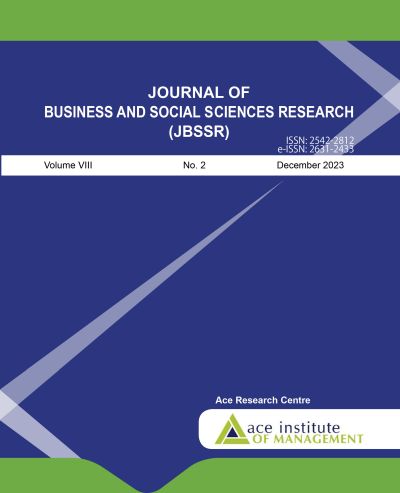Perception of Millennials towards Eco-Friendly Products in Kathmandu Valley
DOI:
https://doi.org/10.3126/jbssr.v8i2.62138Keywords:
Consumer greendex, environmental advertising, green attitude, green purchase intention, Millennials’ perceptionAbstract
This study aims to analyse the effect of various influencing factors on the perception of millennials towards eco-friendly products in Kathmandu Valley. The study is quantitative and descriptive and conducted using primary sources of data. It has adopted the mono-method, whereby survey and statement type questions have been used to analyse quantitative data. A non-probabilistic sampling technique has been used in this research with a sample size of 384. The collected data were analysed using descriptive statistics, independent sample t-test, one-way ANOVA test, correlation analysis, reliability testing, and regression analysis. The influencing variables considered are interest in the protection of the environment, reusability, consumer Greendex/ green attitude, concern for health, subjective norms and social influence, trust in green product, perceived quality of green product and environmental advertising. The results show that there is a positive correlation between all the influencing factors and millennials’ perception towards eco-friendly products. Environmental advertising has created the highest impact on the millennials’ perception by analysing the beta coefficient. Overall, the finding suggests that the concerned authorities, policymakers, producers/manufacturers and marketers of eco-friendly products should focus more on promoting the products using environmental claims, attributes, structures, rules, and tactics so that millennials’ perception towards green purchase can be positively influenced.
Downloads
Downloads
Published
How to Cite
Issue
Section
License
© JBSSR/AIM
Authors are required to transfer their Copyright to the Journal of Business and Social Sciences Research.




